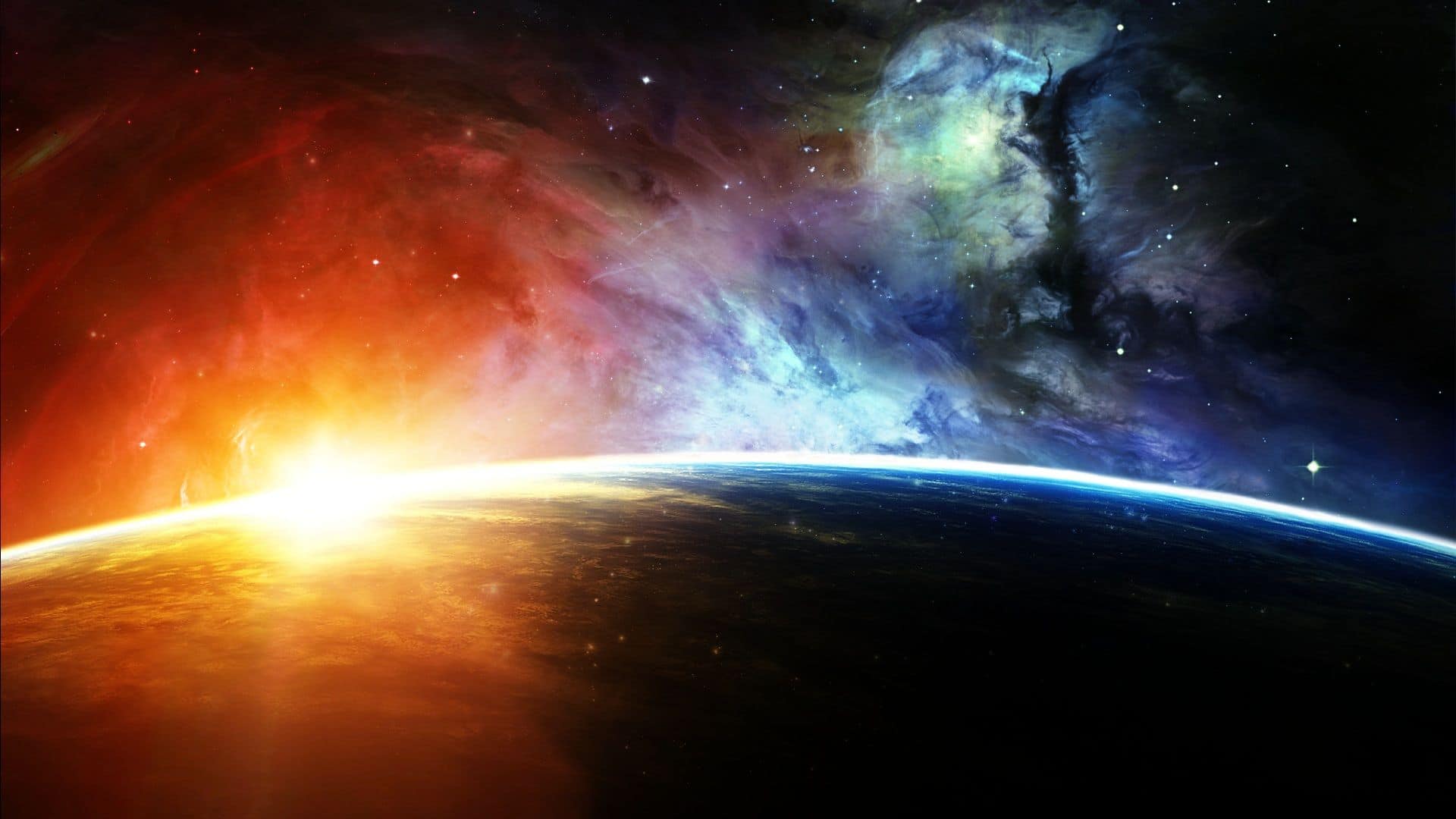Have you ever heard of creation science? If you haven’t, it may be one of the most significant issues today that you are not aware of. If you have, you may know that it is an attempt to explain the biblical account of creation by using scientific evidence.
The problem is that creation science is not at all scientific, and many Christians see it as harming their reputation and the reputation of the Bible. Keep reading to learn about what creation science is, what it attempts to prove, and why it is such a big deal.
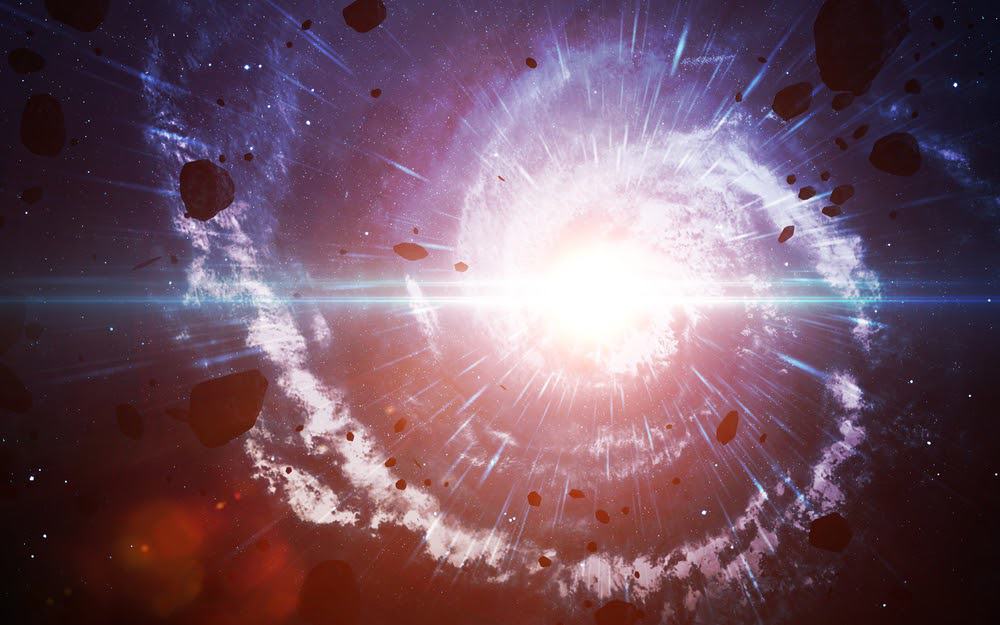
Mainstream Scientists Believe The Universe Was Created In The Big Bang
The Big Bang theory suggests that the universe began about 14 billion years ago from a speck of infinite mass and gravity known as a singularity. That singularity did not contain the entire universe within it but immense energy.
Something triggered a release of that energy and caused the singularity to expand in an explosion known as the Big Bang. That expansion became the universe; it has not stopped, as the universe continues expanding to this day. Scientists do not understand what exactly triggered the Big Bang, and not all scientists believe that the Big Bang theory adequately explains the origins of the universe. However, it is the most widely accepted theory.
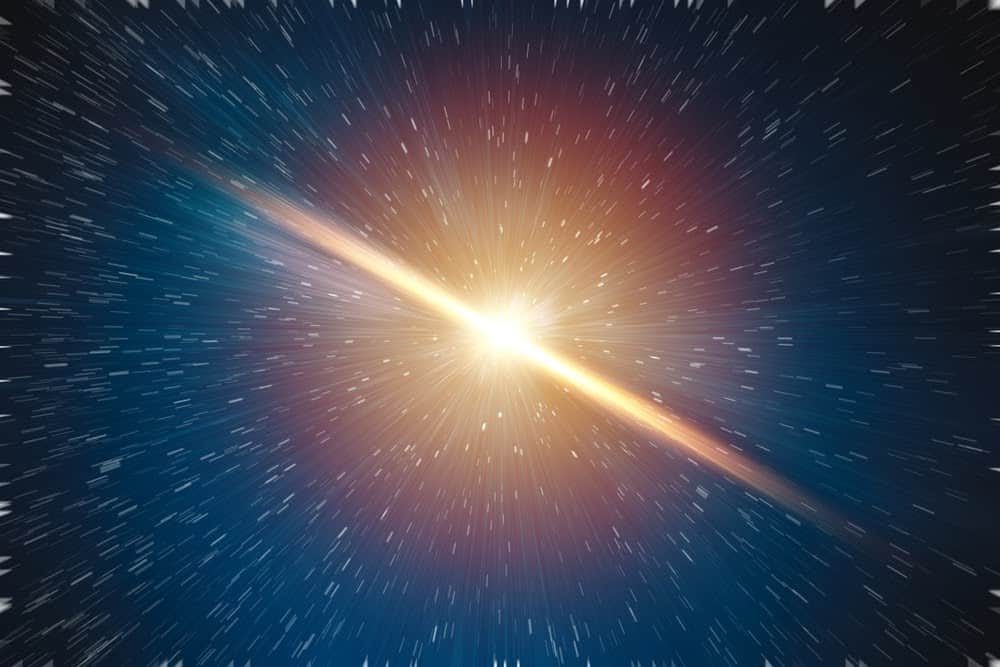
The Big Bang Theory Originated In 1922
Alexander Friedman was a Russian mathematician who, in 1922, came up with the idea now known as the Big Bang theory. He developed mathematical equations that showed that the universe was expanding and had been expanding for some time.
In 1927, Friedman’s ideas were expanded upon by a Belgian physicist named Georges-Henri LemaitrHe referred to the Big Bang as the “hypothesis of the primeval atom,” that atom being the singularity. Lemaitre had no intention of disproving the Bible or asserting the superiority of science over religion; he was a Catholic priest who taught physics at the Catholic University of Louvain.
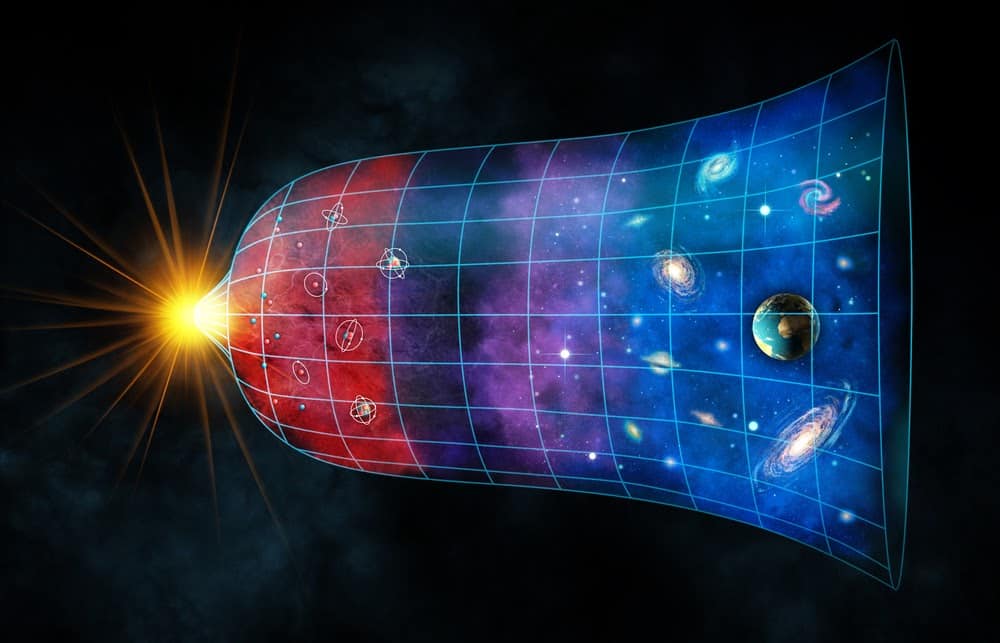
Discoveries Made Later By Scientists Supported It
Shortly after Lemaitre posited that galaxies in the universe were expanding, Edwin Hubble pointed a telescope at the sky and proved through observation that Lemaitre’s hypothesis was correct. The galaxies were moving away from each other. Even more, Hubble noticed that the further away a galaxy is from us, the faster it is moving!
In the time since the 1920s, when the idea of the Big Bang was first becoming formulated, more and more observations and calculations have shown that this idea of how the universe began fits the data.
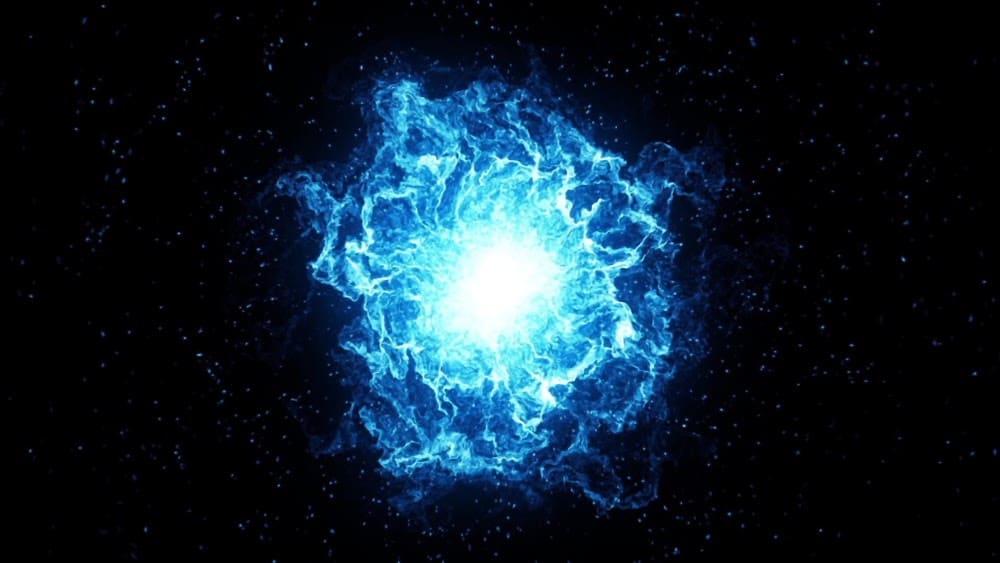
Stars Formed Where Energy Coalesced In Pockets
The singularity that began to expand in the Big Bang did not contain all of the material that now makes up the universe. Instead, it provided an infinite amount of energy that exploded. Albert Einstein showed that there is a direct relationship between energy and matter, and the energy released in the Big Bang turned into the matter we see today.
Where energy coalesced into pockets and became converted into gaseous matter, stars formed. The gas and dust formed into massive clouds, which scientists liken to “stellar nurseries” because they give birth to stars. Gravity compressed the gases together until they ignited through the process of nuclear fusion.
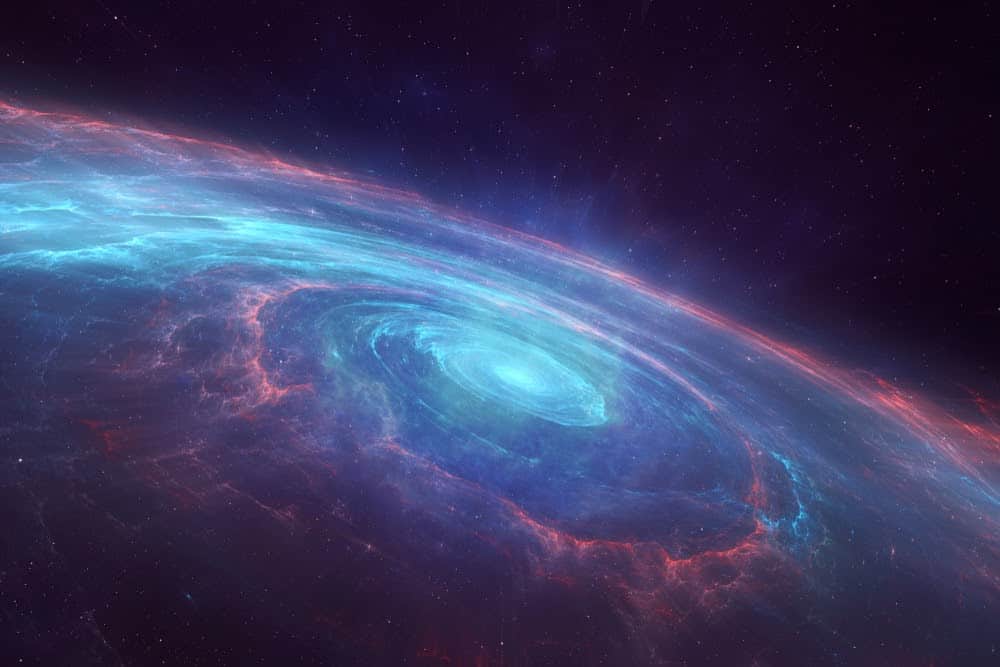
Planets Formed From Stellar Dust That Gravity Brought Together
Dust and gas that didn’t quite make its way into the star became planets. Gravity caused the dust and gas to compress into rocks that were too small to ignite. The rocky bodies collided with each other and grew until they became planets. Large spheres of compressed gas became gas planets.
Mainstream scientists believe that the earth was formed by rocky bodies colliding into each other so many times that they turned into a spheroid object known as an accretion disk. That disk continued to grow in the volatile early solar system until it took the size and shape of our home planet.
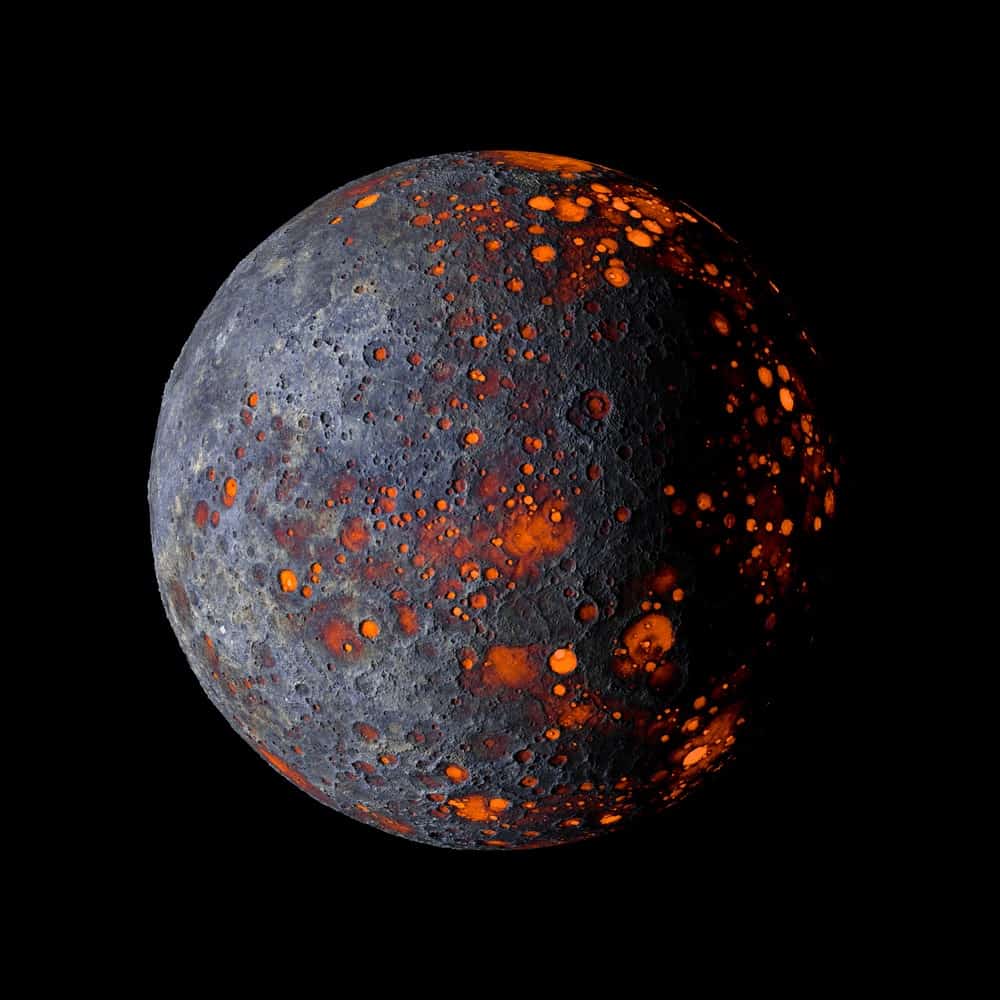
The Earth Began In A Molten State
The impacts caused by all of the bombardments, combined with the effects of gravity shaping the early earth, caused the early planet to be scorching. Mainstream scientists generally believe that the early earth existed in a molten state, meaning it was made of liquid rock.
The earth cooled over time until it achieved a temperature and atmospheric quality that were ideal to live. That process was not linear, as the planet has gone through many cooling and warming periods. In fact, some scientists believe that life on earth began multiple times because of the mass extinction caused by the planet’s changing climate.

Evolution Suggests That Life On Earth Began Gradually
The theory of evolution suggests that life on earth did not just appear one day but instead developed gradually. Mainstream scientists tend to agree that the elements required to create amino acids – the building blocks of both proteins and DNA – came together in the water. From these amino acids, the most primitive lifeforms developed.
For a long time, single-celled lifeforms, such as bacteria, were the only kind of life that could be found on the planet. They gradually developed into more complex lifeforms, which emerged out of the water and onto land. Through DNA mutations, adaptive changes to the environment, and natural selection, the higher lifeforms that we see today, including ourselves, came into existence.

Mainstream Science Today Accepts Evolution As The Explanation For Life On Earth
That evolution is a theory does not mean that it is not accepted. A theory is a set of conclusions drawn from evidence-based data, not a conjecture about something that might be. A hypothesis is a conjecture; a theory is an accepted fact.
There are plenty of scientists who object to evolution, usually because they see the evidence as pointing to different conclusions. However, the vast majority of mainstream scientists accept the theory of evolution as the most plausible explanation for the origin and development of life on planet earth.

Evolution Explains Biodiversity On Earth
There is a remarkable array of different species on planet earth, some of which are very similar, and some of which could not be more different. Yet all life – at least all life that scientists are aware of – contains DNA or at least its more primitive counterpart, RNA.
Even lifeforms that seem to be very dissimilar, such as a mouse and a banana tree, actually share a high level of consistency in their DNA. The presence of DNA and the similarity among all lifeforms in the genetic sequence are accounted for by evolution, meaning that this theory accounts for the immense biodiversity seen on earth.

It Also Explains The Development Of Humanity
One of the more challenging aspects of evolution for people to grapple with is that it posits an explanation for the origin of humans. Evolution suggests that humans evolved from monkeys through a series of stages that occurred over millions of years.
The data and conclusions on this issue are probably the most contentious in the field of evolution. Some scientists, even those who agree with other points of evolution theory, don’t think that the evidence regarding the development of humans fits the conclusions drawn. Nevertheless, there are plenty of other scientists who say that the evidence is there and that new evidence continues to be uncovered.

However, Scriptures Of Different Religions Say Differently
Charles Darwin came up with the theory of evolution in the mid-1800s; meanwhile, Alexander Friedman and Georges-Henri Lemaitre only came up with the Big Bang theory less than a century ago, in the 1920s. These ideas are part of modern science, something that only began a few hundred years ago.
Most scriptures were written far before the modern era. The Hebrew Bible (what Christians view as the Old Testament) was written before the first century CE, and the New Testament was written in the first century. And the Bible does not present the views of Darwin, Friedman, and Lemaitre.
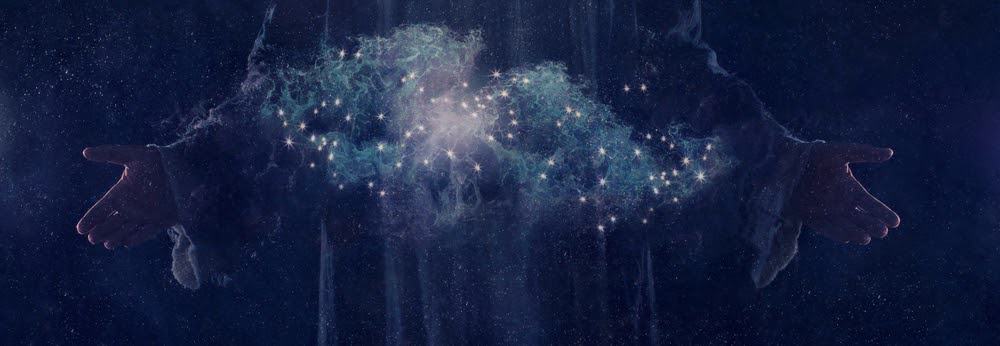
The Bible Says That God, Not The Big Bang And Evolution, Created Everything
The very first verse in the Bible says, “In the beginning, God created the heavens and the earth.” (Genesis 1:1). According to the creation stories told in Genesis 1 and Genesis 2, God spoke the world into being; Genesis 1 says that this event occurred over seven days.
On the first days, God created light. Over the next week, He created water, dry land, the sun, moon, stars, birds, fish, and all living creatures. The last thing He created was humans, Adam and Eve. Finally, after all of His work, He rested on the seventh day and set a precedent for people that they should set aside one day a week to rest.

Many Christians Look At The Bible’s Blueprint As “Creation”
According to many Christians who see the accounts in Genesis as a literal record of both history and science, the universe was created by God with the express purpose of creating humankind in His image. Fundamentalists, in particular, say that this view is most compatible with the Genesis narrative.
For some Christians, particularly fundamentalists, the Bible must be taken literally in all regards for any of it to be considered valid. As such, they insist that the creation account told in Genesis must be taken literally, even if doing so means rejecting mainstream science.

“Creationism” Is At Odds With Mainstream Science
Many Christians who believe in creation claim that the earth is less than 10,000 years old, as they see this age is compatible with the overall narrative told in the Bible. This view is known as “young-earth creationism,” and it is entirely at odds with mainstream science.
Geologic evidence suggests that the earth is approximately five billion years old; evolutionary evidence suggests that 10,000 years ago, people were building cities and developing agriculture and writing. Both views cannot be right – the earth cannot simultaneously be 10,000 years old and five billion years old. However, both views can also be wrong.
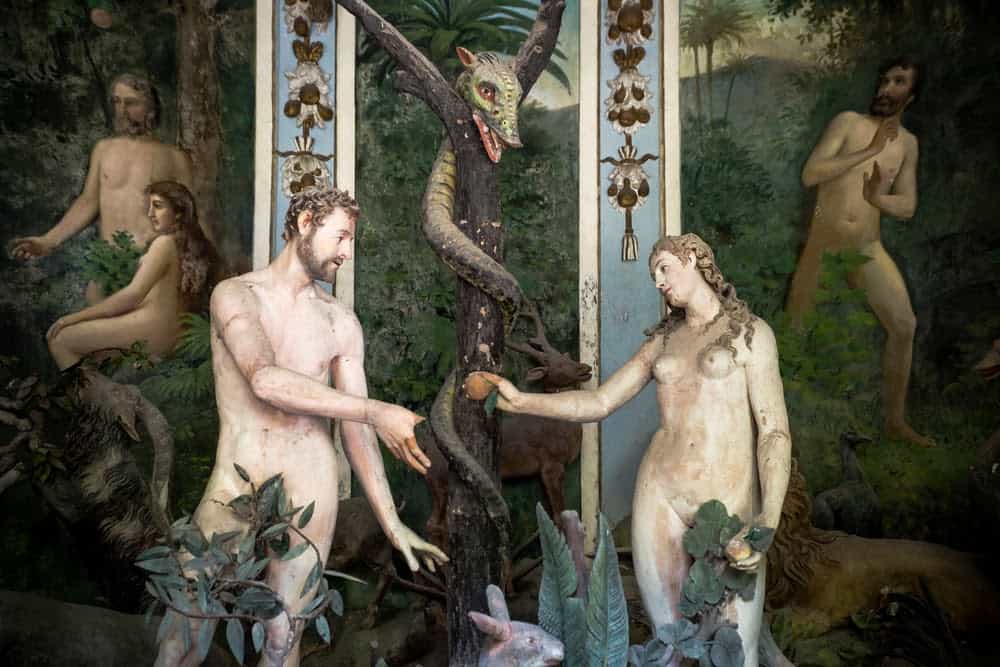
Many People Accept The Biblical Account Is Superior To The Scientific One
Given that fundamentalist Christians, in particular, believe that they must choose between the Bible’s account of creation and mainstream science’s account of the Big Bang and biological evolution, they often pick the Bible.
Some Christians view the Bible as a textbook of history and science and that it contains the entire history of the world within its pages. Other Christians appreciate the creation account in Genesis as a story that communicates truths about God and humankind’s relationship to Him without insisting that it must have literally happened in precisely that way.

To Support This View, Some Christians Have Developed “Creation Science”
Creation versus evolution has been a battleground for fundamentalists since the Protestant fundamentalist movement began in the United States towards the end of the nineteenth century. At the famous Scopes Trial of 1925, a fundamentalist lawyer defended creationism by pointing to methods of biblical interpretation.
Today, creationists also rely on a newly developed field known as creation science. “Creation science” rebuffs mainstream science that asserts models and theories such as the Big Bang, the biological evolution of life on earth, and the idea that the earth is five billion years old.

Creation Science Presents Evidence For The Genesis Account
Creation science does more than defend the religious truths contained within the Bible and particularly in the first two chapters of Genesis. It attempts to present scientific evidence that shows that the creation account is the most substantial scientific understanding of the origins of the universe and life on earth.
Creation science looks at markers such as biological and chemical evidence in oil, which mainstream scientists believe was formed over processes that spanned millions of years. They use these markers as evidence that oil is actually a very young resource that points to a very young earth.

It Sees Mainstream Science Is Bunk
Scientists have dated oil using a series of tests, including radiocarbon dating; these tests consistently reveal that oil is tens of millions of years old. Creation scientists rebuff these claims by saying that radiocarbon dating and other scientific measures are inadequate and faulty.
Where geologists see evidence that the earth is billions of years old, creation scientists see evidence of the seven days of creation, as told in Genesis. Creation science is often about disproving mainstream, modern science as much as it is about presenting scientific evidence for the biblical story of creation.

Creation Science Is Filled With Methodological Problems
The scientific method, which was developed to ensure that scientists were not misconstruing evidence to support their foregone conclusions, stipulates that a determination can only be drawn from evidence that is gathered. Investigators formulate a hypothesis – an educated guess about what they think the evidence will say – but that hypothesis must be falsifiable. In other words, they have to be able to prove that it is wrong.
Creation science does the exact opposite. It begins with a conclusion – that the earth was created less than 10,000 years ago, per the book of Genesis – and then looks for evidence to support that conclusion. This methodological problem alone is enough to dismiss the entire field of creation science as being unfit for the task of scientific investigation. In other words, the hypothesis is not falsifiable; it cannot be disproven, so the evidence matters very little.
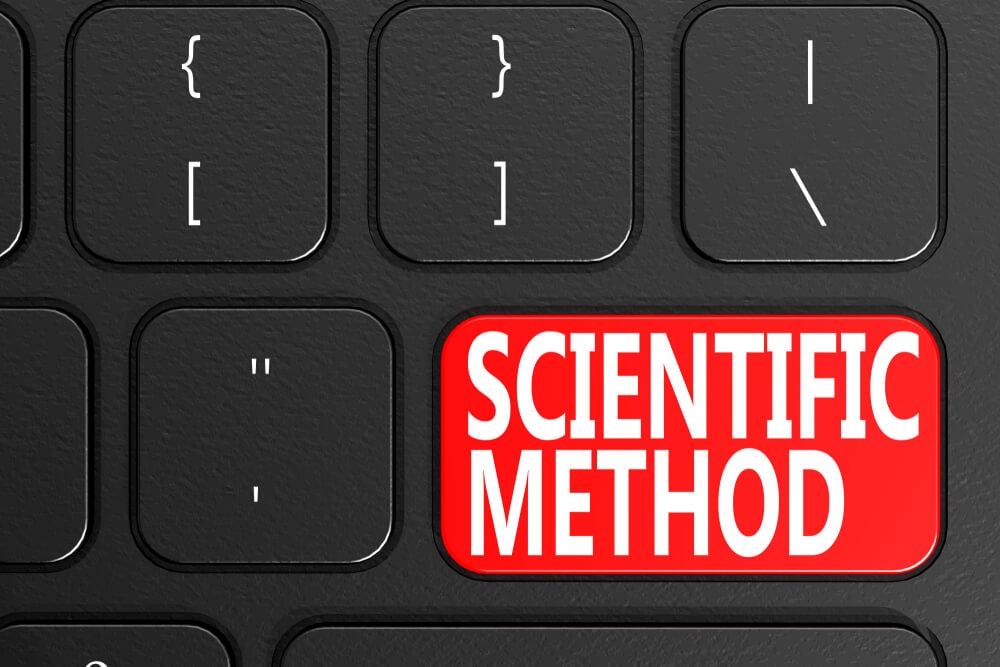
It Also Rejects Scientific Ideas
Not all scientists hold to the Big Bang theory, and not all scientists hold to biological evolution. They see these theories as unable to satisfactorily explain the origins of the universe and the development of life on earth, so they have designed alternative models for gathering, examining, and interpreting evidence.
Creation science is different. It rejects the approach of gathering and interpreting evidence before concluding, as well as other markers and tests that scientists use. Despite being labeled as “science,” creation science rejects pretty much all approaches that are associated with modern, mainstream science.

It Relies On Means Other Than Carbon Dating
Carbon dating is a reliable means of measuring the age of organic matter, based on the known rate of decay of the isotope carbon-14. Carbon dating consistently turns updates that are hundreds of millions of years ago, indicating that organic life on earth is at least that old.
That old age of the earth is inconsistent with a literal account of Genesis, so creation scientists look to other methods for determining the age of organic matter. The measures that creation scientists use are not consistent with mainstream science, so the conclusions drawn cannot be accepted by the mainstream community.
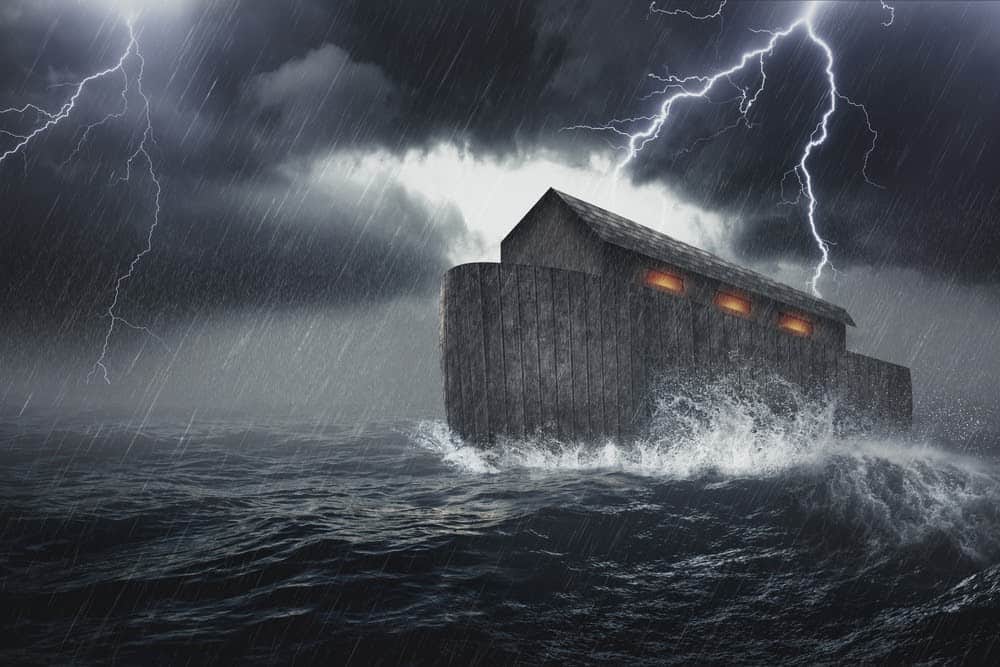
Noah’s Flood Is Used To Explain Away Inconsistencies
One problem for creation scientists is that geologic evidence points to some rock formations being hundreds of millions of years old and the earth itself being five billion years old. These dates are much, much older than the 10,000-year age that creation scientists use for the earth.
Creation scientists use the great flood – recorded in Genesis 6 – to explain away the geologic evidence of the earth being quite old. They claim that the enormous pressure created by the floodwaters caused the rock formations to appear to be much older than they actually are.

“Intelligent Design” Also Explains Away Inconsistencies
The idea of “intelligent design” posits that God has been overseeing the development of the universe and life on earth; this idea is one that many Christians who are not creationists would agree with. Nevertheless, creation scientists look to the notion of intelligent design to further explain away inconsistencies in evidence that do not match their foregone conclusions of a young, created earth.
In fact, the United States Supreme Court ruled against the use of intelligent design as a scientific model. In the case Kitzmiller v Dover, which was based on the teaching of intelligent design in public schools, the court determined that the model is too closely related to creationism to have any scientific validity.

There Are Many Institutions In The United States That Promote Creation Science
Creation science may lie outside of the mainstream and not uphold the scientific rigor applied to other fields, but it is quite popular. Many institutions in the United States, particularly those run by fundamentalist Christians who support a literalist interpretation of the Bible, promote it as the only accurate explanation of the evidence.
These institutions are thoroughly at odds with mainstream science and are not accepted by the scientific community. However, they are the source of information on the origins of the universe and the development of life on earth for hundreds of thousands of people.

One Is The Creation Museum
Ken Ham is a creation scientist who founded the Creation Museum in Petersburg, Kentucky, to help disseminate the view of young-earth creationism. Mainstream scientists discredit the museum as being pseudoscientific, not because it is religious in nature but because the methods it uses do not correspond with the scientific method.
The Creation Museum is enormous. It is 75,000 square feet and employs 300 people, all of whom are committed to communicating intelligent design and creation science. The museum has dinosaur skeletons and portrays them as living side-by-side with humans before all of the dinosaurs were wiped out in Noah’s Flood.

Another Is Liberty University
Liberty University, located in Lynchburg, Virginia, was founded by the fundamentalist pastor Jerry Falwell and approaches all fields of study from the perspective of biblical literalism. Moreover, Liberty University might be the only school in the world that offers students the opportunity to get a minor in creation studies.
Liberty University has its own hall dedicated to showing the evidence for biblical creation, and members of its team of creation scientists regularly visit churches and schools to explain the “science” behind creation. Many biblical literalists who want to better understand creationism head to Liberty to learn more.

An Online Resource Is Answers In Genesis
Ken Ham, the founder of the Creation Museum, has an online website called Answers in Genesis. The site has hundreds of articles, many written by Ham but some written by other creation scientists, that present evidence for creationism and discredit mainstream science.
Ken Ham has also written many books that present the creationist perspective. He goes so far as to argue that in order for Christians to believe the Bible, they must understand that humans lived alongside dinosaurs; otherwise, the entire Bible can be discredited. Many, many Christians disagree with this view.

There’s Also The Center For Scientific Creation
Another leader in the creation science movement is Walt Brown, the founder of the Center for Scientific Creation. Brown came up with an idea known as the hydroplate theory, in which he explains that the modern concept of plate tectonics can be demonstrated by looking at Noah’s Flood.
Through the Center for Scientific Creation and the books that Brown has published, he has been able to disseminate this pseudoscientific view in such a way that it seems to be believable. Many biblical literalists turn to Brown’s publications for evidence that supports the Genesis account of creation.
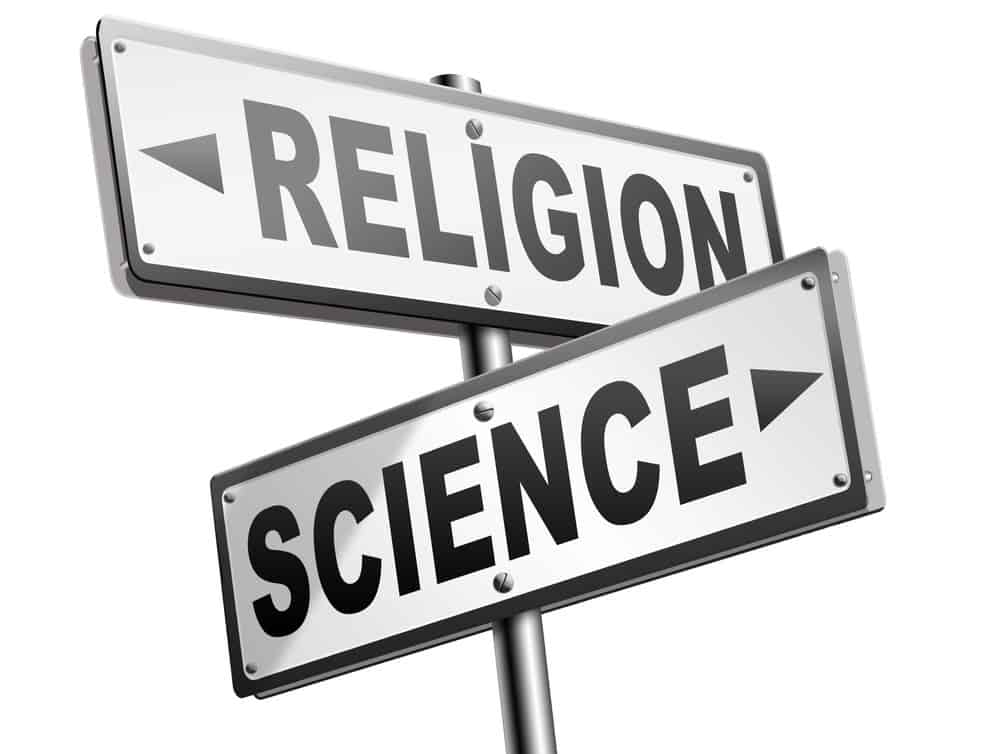
Do Science And Religion Have To Be At Odds With Each Other?
Plenty of Christians say that there is not necessarily a contradiction between mainstream science and the Bible. Recall that Lemaitre, who helped formulate the Big Bang theory, was himself a Catholic priest!
Many Christians believe that the Bible must play a moral role in determining the ethical reach of mainstream science. It can help Christians explore the morality of scientific innovations such as cloning and help them achieve solidarity if they feel they must object to something. They see the Bible as a necessary tool for keeping mainstream science on track and making sure that it does not become oppressive and, in any way, deny our humanity and our dignity.

For Many Creationist Christians, The Issue Is Not Just The Science Behind The Big Bang And Evolution
Scientists who explore theories regarding the origins of the universe and the development of life on earth by applying rigorous scientific methods – formulating a falsifiable hypothesis, looking for evidence and interpreting it, and arriving at a conclusion that may not be the same as the hypothesis – have come up with far different conclusions than creation scientists.
For these creation scientists, one issue is that the methods used to collect and interpret data, such as carbon dating, are inadequate. However, there is a more significant issue at stake that creation scientists will continue to uphold, no matter what the “evidence” may or may not say.
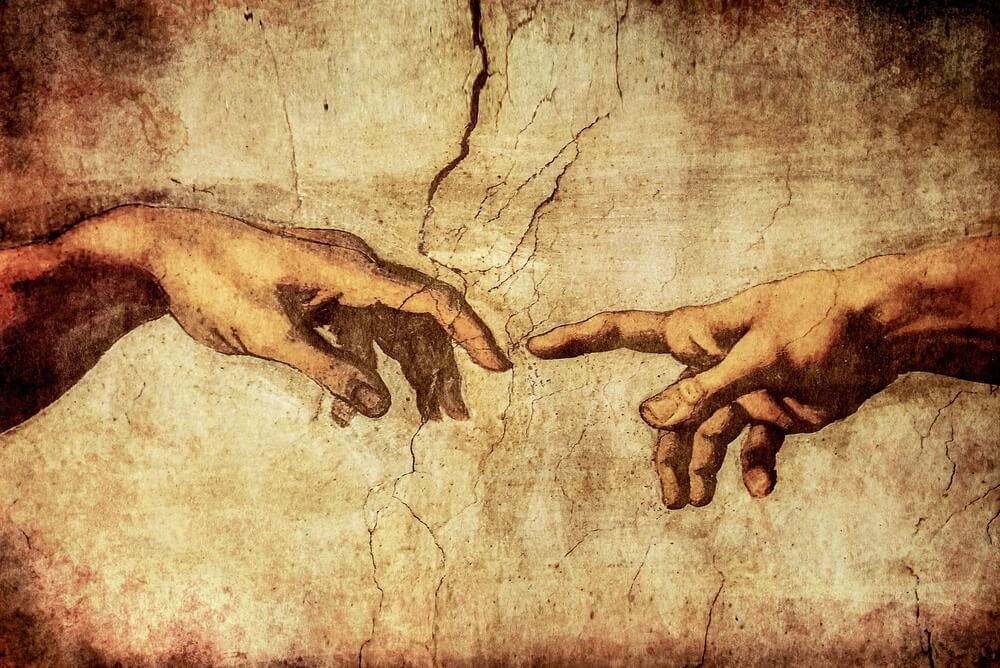
The Issue Is The Premise That Denies The Genesis Account
The biggest problem with biological evolution and the Big Bang theory is that they are not compatible with a literal interpretation of the Genesis account of creation. Biblical literalists insist that only one or the other can be correct – either mainstream science, with the Big Bang and evolution – or the Bible.
No matter what the evidence says or the methodology that is applied, creation, scientists will always reject what mainstream science says about origins. More substantial evidence and more rigorous methodology are not going to change their minds; only taking a different, more open-minded approach to the Bible will.

Nevertheless, Many Christians Have Embraced The Big Bang And Evolution
Many Christians see absolutely no contradiction between the scientific theories of the Big Bang and biological evolution, and the spiritual truths about God revealing Himself to humanity that the writers of the Bible communicated. Again, one such scientist/Christian was Lemaitre.
In fact, there are many Christians who work as scientists studying the Big Bang, evolution, and other theories regarding origins. They are not trying to undermine or disprove these theories, as they do not believe that scientific accounts present any dilemma in upholding the Bible. They see the Bible as communicating spiritual truths and moral guidance, both of which can be applied to how they pursue science.

They Do Not See Mainstream Science As Undermining The Bible
Many scientists throughout history have been Christians, and they have made incredible strides in furthering our understanding of the natural world. They may not necessarily be trying to prove or disprove the Bible. However, they often do see science and scientific investigation as a means of better appreciating God and His world.
In fact, many Christians see mainstream science as supporting the Bible! They are not looking for science to uphold a literal interpretation of events such as the creation account in Genesis; instead, they see science as presenting the vastness and greatness of the God who revealed Himself to humanity in the Bible.

Is The Bible A Scientific Textbook?
For much of the history of Christianity, the Bible has been used as a scientific textbook. In Medieval Europe and the Puritan colonies, the ruling authorities were directly connected to the church, and modern science was in its infancy. Scientific evidence that was not consistent with a literal account of the Bible was often dismissed, and scientists were often punished severely.
But not so today. The literalist approach to the Bible has been replaced with more modern critiques that see it as an ancient text that communicates transcendent truths to humanity. It is no longer used as a scientific textbook, and scientific views that do not immediately conform to events in the Bible are often accepted.
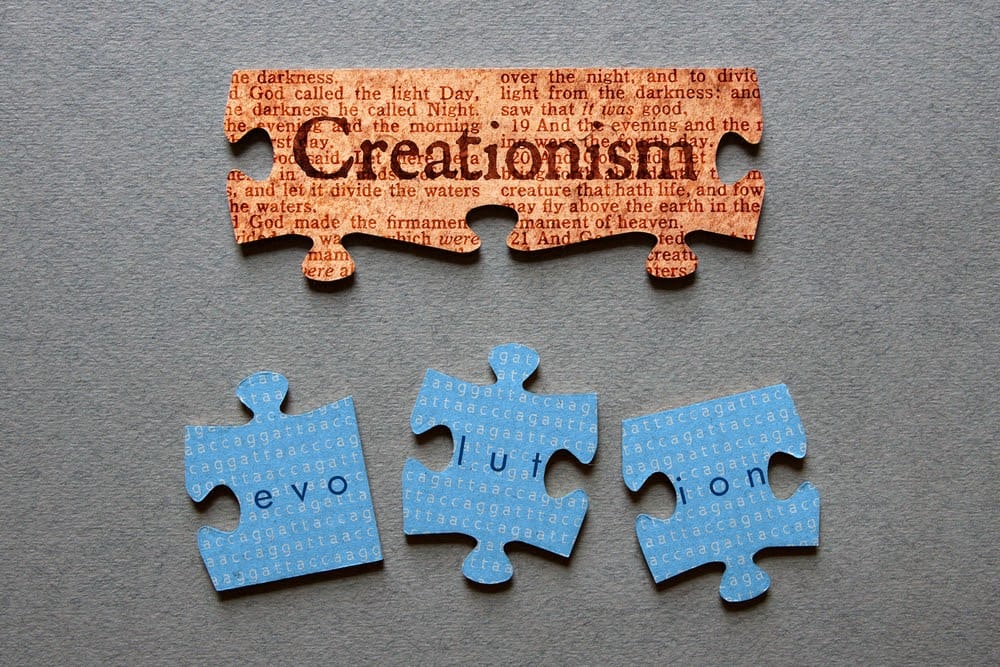
Some Christians Say No
In fact, many Christians say no. They are delighted to accept both mainstream, modern science, and the Bible as applicable to life today. While creationists who insist on creation science may be the most vocal and get the most attention, there are plenty of other Christians who have different views.
The gap between Christians who uphold creation science and Christians who support mainstream science is not about the evidence and how well the scientific method was used. The gap is about how the Bible is interpreted and how it should be applied to modern life. Does it have to be interpreted in such a way that it must be scientifically accurate in all regards in order for it to be true?

However, That Doesn’t Mean The Bible Is Not Meaningful
Christians who embrace the Bible while also taking an open-minded approach to mainstream science see that the Bible is still very meaningful. It does not have to present a scientific account of the origins of the universe and the development of life for it to offer spiritual and moral guidance for people today.
In fact, for many Christians who do not take a literalist approach to the Bible, it is more meaningful because of how they intentionally apply its truths to their spiritual and moral selves. They see a literalist approach as close-minded and stunting their spiritual growth.

Some Say That Religion And Science Exist In Separate Spheres
Instead of saying that the Bible must be scientifically accurate in all regards, many Christians today say that its role is to communicate timeless spiritual truths about the nature of God and His revelation of Himself to humanity. One response that Christians can have to this revelation is to pursue an understanding of the natural world, under the guidance of the Bible’s moral standards.
From this perspective, the Bible fulfills a role separate from science. Nevertheless, both come together in that science helps create a fuller depiction of the intricate workings of the world and create a greater appreciation for the divine, who is revealed in the Bible.
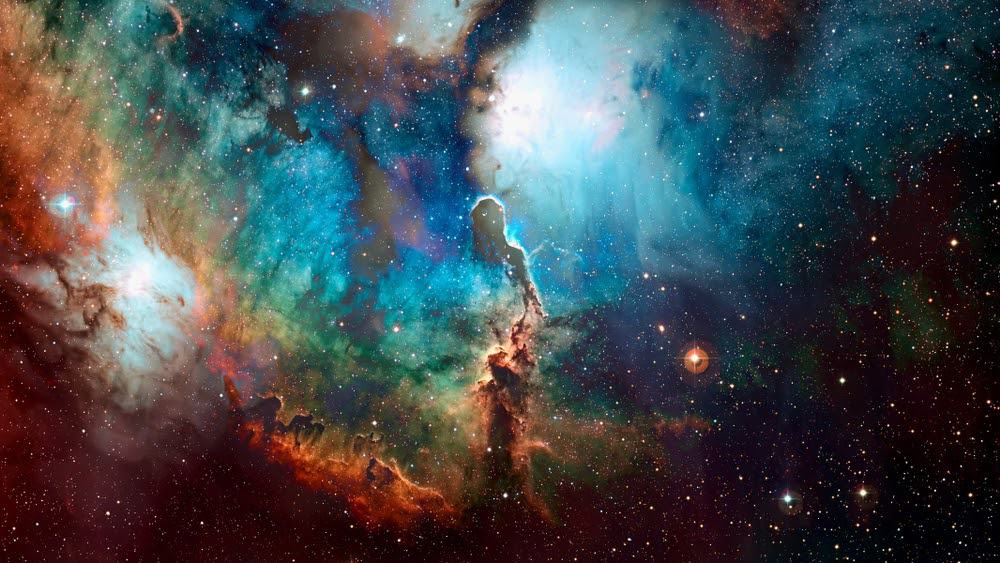
They Do Not Have To Undermine Each Other
Science and the Bible can coexist very well. There is no need for a pseudoscientific field of “creation science” in order to uphold the authority of the Bible and show that it is relevant to people’s lives today. Plenty of Christians are pleased to hold the Bible in one hand and mainstream science in the other.
The challenge lies in determining how the Bible should be approached and understanding the scope and limitations of mainstream science. A more open-minded approach to both science and the Bible allows for harmony between the two without undermining either one.

